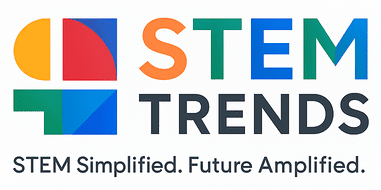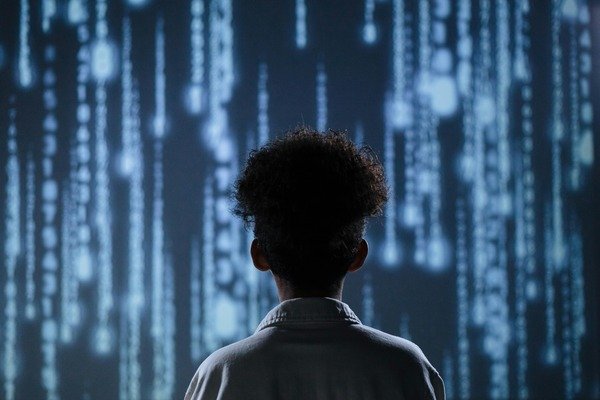AI in the Classroom: How Intelligent Tech is Revolutionizing Learning
By John
Remember those days of one-size-fits-all education? Where every student read the same textbooks, completed the same assignments, and moved at the same pace? While foundational, this traditional model often struggled to cater to the unique strengths, weaknesses, and learning styles of every individual. But what if learning could be truly personalized? What if educators had a powerful assistant to help them unlock each student’s full potential? Enter Artificial Intelligence (AI) – a transformative force that’s not just knocking on the classroom door, but fundamentally revolutionizing the very fabric of learning. Intelligent technology is here, and it’s reshaping how students engage with material, how teachers instruct, and how educational outcomes are achieved across the United States.
Personalizing Learning with AI: A Tailored Experience for Every Student
The most significant impact of AI in education is its ability to personalize learning. Gone are the days when every student followed an identical path. AI-powered adaptive learning platforms can now analyze a student’s performance in real-time, identifying their specific learning gaps, strengths, and preferred learning modalities. For instance, if a student struggles with algebraic equations, the AI system can automatically provide supplementary exercises, offer different explanations, or even recommend external resources, all while the student works at their own pace.
This isn’t just about faster learning; it’s about deeper understanding. Students receive immediate, targeted feedback, allowing them to correct misunderstandings before they become ingrained, fostering a more confident and effective learning journey. This individualized approach ensures that no student is left behind, nor is any student held back, optimizing the learning curve for everyone. AI in the classroom truly means a learning experience crafted for each learner.
AI as a Powerful Ally for Educators: Beyond Grading and Administration
While the focus is often on student benefits, AI is equally revolutionizing the role of the educator. Teachers are frequently burdened with extensive administrative tasks – grading papers, tracking attendance, and analyzing performance data. AI tools can automate many of these mundane, time-consuming responsibilities. Imagine an AI system that can grade multiple-choice tests instantly, provide preliminary feedback on essay structures, or even flag students who might be at risk of falling behind based on their engagement patterns.
This frees up invaluable time for teachers to do what they do best: provide direct instruction, engage in meaningful mentorship, and offer emotional support to their students. With AI handling the data crunching, educators gain unprecedented insights into classroom trends and individual student needs, empowering them to make more informed decisions and focus on high-impact teaching strategies. AI isn’t replacing teachers; it’s augmenting their capabilities, turning them into super-educators. This intelligent tech provides a robust support system, elevating the quality of education delivered.
Enhancing Engagement and Accessibility Through Intelligent Tools
Beyond personalization, AI is making learning more dynamic and accessible. Consider the rise of AI-powered virtual tutors and intelligent chatbots. These tools can provide instant answers to student questions, offer clarification on complex topics, or even engage in dialogue to help students practice language skills or prepare for presentations. This always-on support ensures students can get help precisely when they need it, reducing frustration and fostering independence.
Furthermore, AI contributes significantly to making education more accessible for diverse learners. AI-powered translation tools can bridge language barriers, while speech-to-text and text-to-speech technologies assist students with various learning disabilities. Virtual reality (VR) and augmented reality (AR) experiences, often underpinned by AI, transport students to historical events, inside the human body, or into distant galaxies, creating immersive and unforgettable learning moments that traditional methods simply cannot replicate. This enhanced engagement is a core component of how AI is revolutionizing learning.
Preparing for the Future: AI Literacy and the Workforce
The integration of AI in the classroom isn’t just about improving current educational outcomes; it’s about preparing students for an AI-driven future. As industries across the globe increasingly rely on artificial intelligence, machine learning, and automation, understanding these technologies is no longer a niche skill but a fundamental literacy requirement. Students exposed to AI in their learning environment develop critical computational thinking skills, problem-solving abilities, and an intuitive understanding of how intelligent systems work.
This exposure equips them not only to adapt to future job markets, which will undoubtedly demand AI proficiency, but also to become innovative contributors in an evolving technological landscape. By teaching with AI, schools are also teaching about AI, bridging the skills gap and empowering the next generation for success in a world transformed by intelligent tech. This foresight in artificial intelligence education is crucial for national competitiveness.
Navigating the Evolution: Ethical Considerations and Human Oversight
While the potential of AI in education is immense, it’s crucial to approach its integration thoughtfully. Conversations around data privacy, algorithmic bias, and ensuring equitable access to these technologies are ongoing and vital. The goal is to leverage AI as a powerful tool that enhances human learning and teaching, not to replace the irreplaceable human connection within the classroom. Maintaining human oversight, prioritizing student well-being, and continuously evaluating the ethical implications of AI deployment are paramount to harnessing its full benefits responsibly. The human element remains at the core of effective education.
The Future is Now: A Collaborative Learning Landscape
In conclusion, artificial intelligence is no longer a futuristic concept confined to sci-fi novels; it’s an active, impactful force within today’s classrooms. From hyper-personalized learning pathways and invaluable support for educators to engaging immersive experiences and critical future-ready skill development, intelligent technology is genuinely revolutionizing learning. As schools across the US embrace these advancements, we are moving towards an educational landscape that is more dynamic, equitable, and effective than ever before. The partnership between human intelligence and artificial intelligence promises to unlock unprecedented educational opportunities, preparing students not just for tests but for life in a rapidly evolving world.


